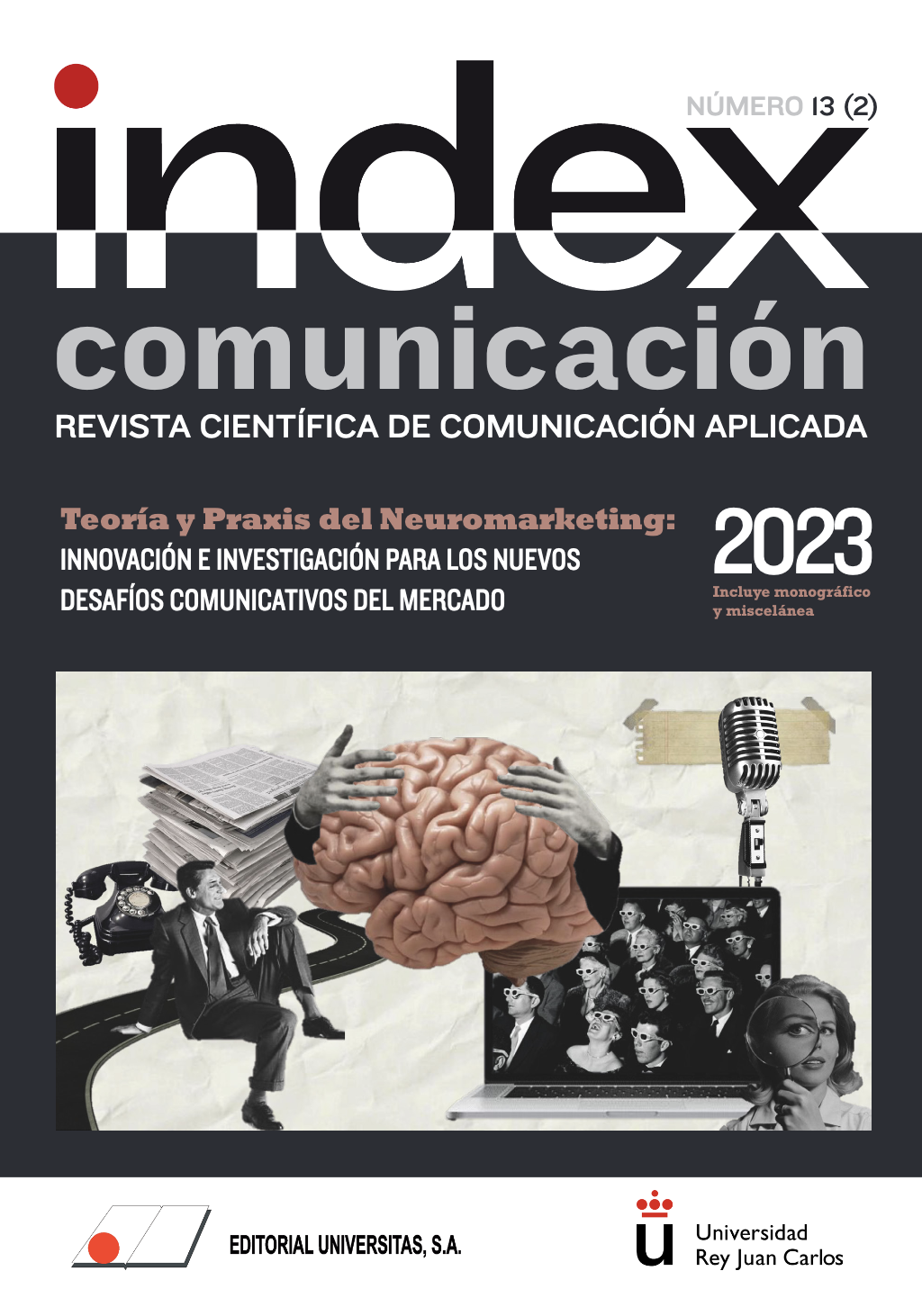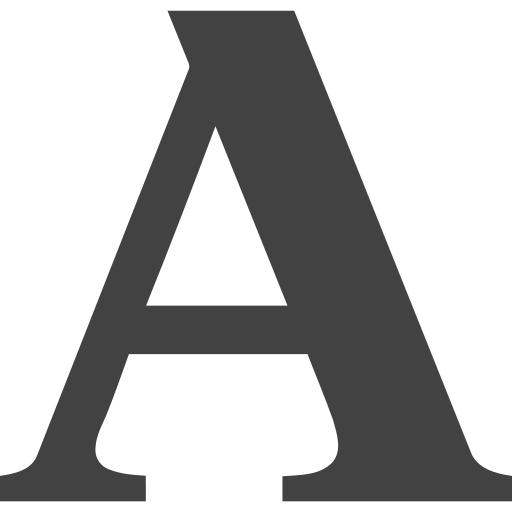Establishment of Agenda and Ethnomethodology. It’s Complementation in a Study of the Local Public Agenda
DOI:
https://doi.org/10.33732/ixc/13/02AgendaKeywords:
Agenda Setting Theory, Agenda, Daily Life, Public Agenda, Ethnomethodology, EpistemologyAbstract
The article determines shortcomings of the Agenda Setting Theory that do not contribute to the complex appropriation of the formation of the public agenda within the social framework. For further study, its triangulation with the ethnomethodological approach was proposed, in order to delve into the phenomenon from the dialectics of daily life in the town of El Caney (Santiago de Cuba, Cuba). The methodological design was qualitative, although data from the quantitative tradition were triangulated. The applied techniques were: participant observation, focus groups, questionnaires and Spearman rho coefficient. The results show a materialistic, chronic and experiential public agenda, which is built from social practices historically established in the locality. These practices are methods institutionalized by the subjects for their daily development based on pre-established rules and norms that give meaning to the phenomenon. The epistemic and methodological strategy followed by the case study proved to be feasible to delve into the public agenda as a social and human fact (socio-anthropological) and transcend the mediocentric, positivist and decontextualized limitations that Agenda Setting has been criticized for.
Metrics
References
ANDRÉU, J. (2012). La descodificación de la agenda: Un modelo analítico para el conocimiento manifiesto y latente de la agenda pública. Intangible Capital, 8(3), 520-547. https://doi.org/10.3926/ic.380
ARDÉVOL, A., GIL. H. Y MCCOMBS, M. (2020). Orígenes y desarrollo de la teoría de la agenda setting en Comunicación. Tendencias en España (2014-2019). Profesional de la Información, 29(4), 1-23. https://doi.org/10.3145/epi.2020.jul.14
BENTIVEGNA, S., Y BOCCIA, G. (2020). Rethinking Public Agenda in a Time of High-Choice Media Environment. Cogitatio, 8(4), 6-15. https://doi.org/10.17645/mac.v8i4.3166
BOUZA, F. (1998). Comunicación Política: Encuestas, Agendas y Procesos Cognitivos Electorales. Praxis sociológica, (3), 49-58. Recuperado de: https://tinyurl.com/y3ybprj9
BOUZA, F. (2005). Lo global y lo local. Recerca, (5), 7-11. Recuperado de: https://tinyurl.com/yc4365ms
BOUZA, F. Y RODRÍGUEZ, R. (2017). Impact area of political communication:
case study (spanish elections 2004). Sociologiados, 2, 35-49.
https://doi.org/ 10.14198/socdos.2017.1.03
CALVACANTE, N. (2021). A etnometodologia como perspectiva de pesquisa: diálogos da prática. Cenas Educacionais, (4), 1-17. Recuperado de: https://tinyurl.com/28eb2wt2
CASERMEIRO, A. (2004). Los medios en las elecciones: la Agenda Setting en la Ciudad de Buenos Aires. Cádiz, España: Educa. Recuperado de: https://tinyurl.com/4jzz4ey3
CASTILLO, Y. y MARTÍNEZ, A. (2022). Dialógica social sobre problemas públicos y desarrollo sociocultural comunitario. Sistematización de una experiencia en Cuba. Estudios del Desarrollo Social: Cuba y América Latina, 10(1), 330-345. Recuperado de: https://tinyurl.com/yc6rcmab
CASTILLO, Y., MUÑIZ, V. Y MARTÍNEZ, A. (2021). La Teoría de la Agenda Setting. Crítica epistemológica y profundización cualitativa a partir de un estudio antropológico. Perspectivas de la Comunicación, 14(1), 231-272. https://doi.org/10.4067/S0718-48672021000100231
CHARRON, J. (1995). Los medios y las fuentes. Los límites del modelo de Agenda Setting. En G. Gauthier, A. Gosselin y J. Mauchon (Coord.), Comunicación y política (pp. 135-151). Editorial Gedisa. Recuperado de: https://tinyurl.com/28eb2wt2
DADER, J.L. (1991). La canalización o fijación de la "agenda" por los medios. Opinión pública y comunicación política. Albacete, España: Eudema Universidad. Recuperado de: https://tinyurl.com/mw79utfe
GALLEGO, J. (2017). Existe... pero no se ve. Investigación de Agenda Setting en América Latina. La Trama de la Comunicación, 21(2), 87-108. https://doi.org/10.35305/lt.v21i2.630
GALLEGO, J.R. y Anazco, F. (2020) La influencia del rumor en construcción de la agenda mediática en la provincia de Camagüey. Revista Mexicana de Opinión Pública, (29), 81-94. https://doi.org/10.22201/fcpys.24484911e.2020.29.71768
GARCÍA, J. (2013). Revolución, socialismo, periodismo. La Habana, Cuba: Pablo de la Torriente. Recuperado de: https://tinyurl.com/5x2s797u
GARFINKEL, H. (2006). Estudios en etnometodología. Barcelona, España: Anthropos. Recuperado de: https://tinyurl.com/56pxeyd3
KIM, Y., KIM, Y. Y ZHU, S. (2017). Theoretical and methodological trends of agenda-setting theory. Agenda Setting Journal, 1(1), 5–22. https://doi.org/10.1075/asj.1.1.03kim
LONGO, M. y Benvenga, L. (2022). Dos enfoques para el análisis sociológico de la vida cotidiana. Interaccionismo simbólico y etnometodología. Contribuciones a las Ciencias Sociales, (enero), 1-14. Recuperado de: https://tinyurl.com/257tmcmv
LÓPEZ, P., CASTRO, P. Y OÑATE, P. (2022). Agenda melding y teorías de la comunicación: la construcción de la imagen de los actors politicos en redes sociales. Cuadrenos del Centro de Estudios de Diseño y Comunicación, (112), 23–39. https://doi.org/10.18682/cdc.vi112.4089
MCCOMBS, M. (2006). Estableciendo la agenda: el impacto de los medios en la opinión pública y en el conocimiento. Barceloma, España: Paidós. Recuperado de: https://tinyurl.com/ycy6843f
MCCOMBS, M. y Shaw, D. (1972) The agenda-setting function of mass media. Public Opinión Quarterly, (36), 176-187. https://doi.org/10.1086/267990
MCCOMBS, M., SHAW, D. Y WEABER, D. (2014). New directions in agenda setting theory and research. Mass communication and society, 17(6), 781 -802. https://doi.org/10.1080/15205436.2014.964871
MUÑIZ, V. y Castillo, Y. (2017) La brecha entre medios y públicos en Cuba. Pautas para un diálogo necesario desde la agenda setting. Alcance, 6(13), 87-111. Recuperado de: https://tinyurl.com/ycksk6bp
MUÑIZ, V. y Castillo, Y. (2018) Estudios de agenda setting en Cuba: propuesta de metodología para un desarrollo posible. Empiria, (41), 127-155.
https://doi.org/empiria.41.2018.22607
MUÑIZ, V., Fonseca, R. y Castillo, Y. (2015). Estudios sobre Agenda Setting en Cuba (2010-2015). Tendencias generales de investigación en pregrado. Razón y Palabra, (92), 1-29. Recuperado de: https://tinyurl.com/5dtbrryw
MUÑIZ, V., Fonseca, R. y Caballero, D. (2016). Formación de la agenda pública sobre temas experienciales en Santiago de Cuba durante el año 2015. Chasqui, (133), 373-392. https://doi.org/10.16921/chasqui.v0i133.2597
NGOA, S. (2006). Agenda-Setting: The Neglected Role of Some Agents of Power-Propaganda (Rumour, Gossip, Religion...). (Tesis inédita de doctorado). University of the Witwatersrand. Recuperado de: https://tinyurl.com/nhenkez7
RAMÍREZ, E. y Salgueiro, A. (2018) Medios digitales y esfera pública: la conversación política sobre migración en el sitio Cubadebate. Chasqui, (138), 149-170. Recuperado de: https://tinyurl.com/2yfendve
RITZER, G. (1992). Teoría Sociológica Contemporánea. Madrid, España: MacGraw-Hill. Recuperado de: https://tinyurl.com/434rt8ef
TAMAYO, M. y Carrillo, E. (2005) La formación de la agenda pública. Foro Internacional, XLV (182), 1-25. Recuperado de: https://tinyurl.com/3wpb3sym
ZUNINO, E. (2018). Agenda Setting: cincuenta años de investigación en comunicación. Intersecciones en comunicación, (12), 187-210. Recuperado de: https://tinyurl.com/2mr5ks2c
Published
How to Cite
Issue
Section
License
Copyright (c) 2023 Yánder Castillo Salina, Viviana Muñiz Zúñiga , Darling Esmeralda Legrá Tisertt (Autor/a)

This work is licensed under a Creative Commons Attribution-NonCommercial 4.0 International License.
Authors who submit to this journal agree to the following terms:
Authors retain copyright and ensure the magazine's right to be the first publication of the work as licensed under a Creative Commons Attribution-NoComercial 4.0 International License that allows others to share the work with an acknowledgment of authorship of the work and the initial publication in this magazine, with no commercial purpose.
Authors can establish separate additional agreements for non-exclusive distribution of the version of the work published in the magazine (for example, to an institutional repository or publish it in a book), with an acknowledgment of its initial publication in this journal.
It allows and authors are encouraged to disseminate their work electronically (eg, in institutional repositories or on their own website) prior to and during the submission process, as it can lead to productive exchanges, as well as a citation more early and most of the published work (See The Effect of Open Access).















